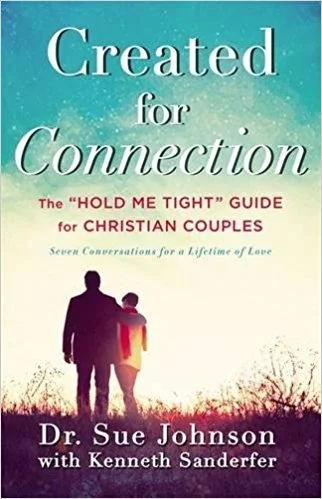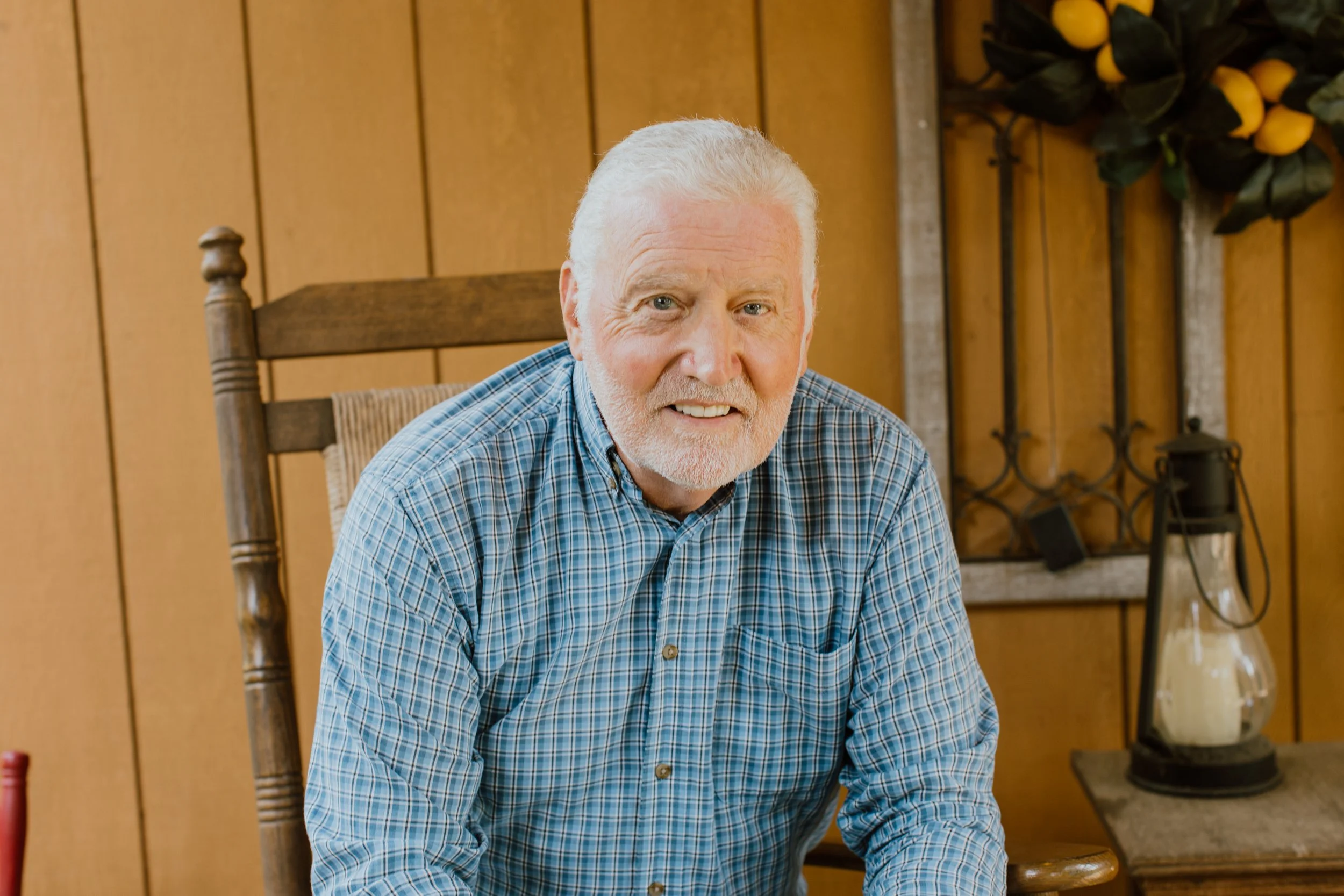Sue became a mentor to Kenny over time. They partnered in a project together to write the book, Created for Connection: the “Hold Me Tight” Guide for Christian Couples together in 2016.
When Sue passed away in 2024 Kenny had the honor of performing her eulogy on Vancouver Island. He calls the two an unlikely pair – a psychologist from Britain and a cowboy from East Texas – “How in the world did God put us together! We had an incredible relationship,” he said. “She was a dear friend. She had a deep impact on my life.”
Kenny’s 24-year career as a therapist has taken him a long way from humble beginnings as a Texas bronco-rider. Kenny graduated from Sam Houston State University with a degree in agriculture in 1974. Raising cattle, sheep and horses are still a big part of his life on his farm in Murfreesboro, Tennessee. Kenny provides two-day intensives on his farm and integrates EFT with equine therapy.
Sue Johnson wrote the book, Hold Me Tight, in 2008, where it climbed the charts and made the New York Times best seller list. It was this book that Kenny and Sue revised for the faith-based audience that then became Created for Connection. The book offers “scriptural support, inspiring stories, and a clear road map that will show you how you can join together and actively shape the love you are looking for – the love that leads you home to a loving God.”
“The message of CREATED FOR CONNECTION is simple: Forget about learning how to argue better, analyzing your early childhood, or making grand romantic gestures. Instead, get to the emotional underpinnings of your relationship by recognizing that you are attached to and dependent on your partner in much the same way that a child is on a parent, and we are on the Heavenly Father, for nurturing, soothing, and protection. The way to enhance or save our relationships with each other and with God is to be open, attuned, responsive, and to reestablish safe emotional connection. Filled with Bible verses, inspiring real-life stories, and guidance, CREATED FOR CONNECTION will ensure a lifetime of love,” as described on the website.
The material can be used for marital enrichment or crisis intervention; couples can go through lessons alone or in groups with a facilitator. The facilitator guide can be found in digital form at www.marriagefamilyinstitute.org.
Kenny and Sue also created a Created for Connection online program. Couples can walk through a seven-session video series with additional research, faith-filled vignettes and updated graphics. “It’s like the book on steroids.” The U.S. Army is using it exclusively. It works well with deployed personnel and several adoption agencies also are using it to strengthen the marriages of adopting parents.
The Created for Connection book and programs guide couples through the seven conversations that research has shown to heal, restore or enhance marriages.











